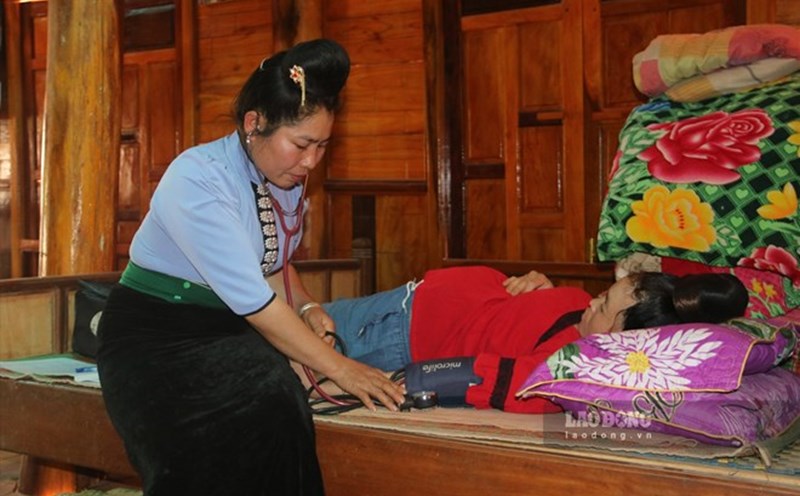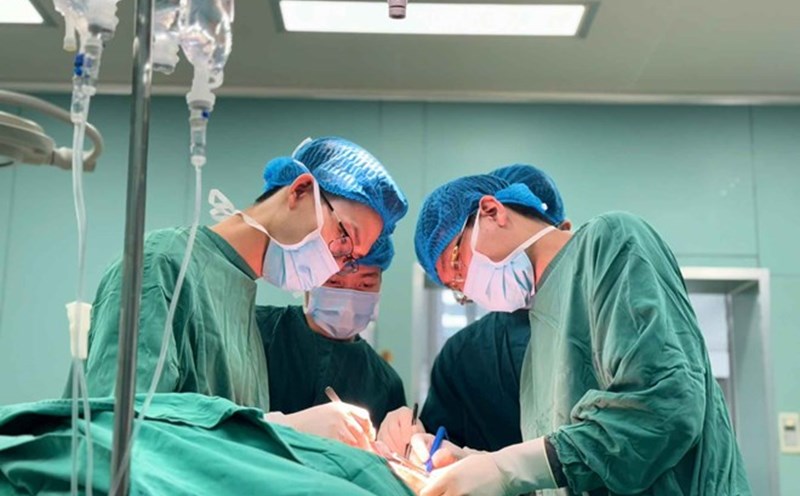Urgently complete the increase in allowances for medical staff
The Ministry of Health is drafting a new Decree to replace Decree 56/2011/ND-CP on preferential allowances according to occupation for civil servants and employees at public health facilities. Expected to be completed in December 2025.
After nearly 15 years of application, many shortcomings have arisen due to changes in disease models, emerging epidemics and increased non-communicable disease burden, while preventive medicine has not been properly assessed. Therefore, the Ministry of Health proposes to adjust to both attract grassroots medical human resources and preventive medicine, and ensure fairness for locations at high risk of infection.
The draft proposes preferential allowances from 30% to 70% depending on the nature of the work and working conditions. The highest rate of 70% applies to civil servants directly treated for phong trao, tuberculosis, mental illness, HIV/AIDS, group A infections, intensive care, forensic medicine, pathology, working in a level III bio-safe laboratory...; or working in particularly difficult areas and islands. The levels of 60%, 50%, 40% and 30% apply to work groups with different levels of risk, expertise and environment.
Increasing allowances for public health: equity is the key
A health worker working at a central hospital shared: Regulations on allowances need to be specific and fair in assessing the level of exposure and risk of infection. For example, infection control staff at a speciallized tuberculosis hospital regularly go to the patient's room, directly monitor contact with tuberculosis patients, and face a high risk of infection and toxicity. Therefore, it is not possible to classify them as receiving a rate of 50% as in hospitals that do not treat tuberculosis patients. Infection control at tuberculosis hospitals needs to apply a 70% allowance to accurately reflect the nature of work and ensure fairness.
Most infection control officials are working in conditions lacking both human resources and equipment, often exposed to sources of pollution and toxic chemicals, but their income is still low due to not receiving additional allowances from medical examination and treatment activities. After more than 20 years of implementation, this inadequacy has discouraged many people from sticking with it. Therefore, raising vocational allowances is considered necessary to recognize the efforts and attract high-quality human resources for this specific field.
Dr. Nguyen Viet Hung - former Head of the Infection Control Department of Bach Mai Hospital, Vice President of the Hanoi Infection Control Association - pointed out a major problem: Infection control staff at the HIV/AIDS, tuberculosis, leprosy, and mental health facilities only receive 40%, while colleagues treat patients 70%. Meanwhile, infection control is the work of directly confronting sources of pollution, medical waste, and toxic chemicals. If not adjusted, this difference will cause injustice and reduce the motivation to contribute.
According to Mr. Hung, raising the allowance for infection control staff to 70% - equal to preventive medicine - is reasonable and necessary. This not only reflects the true nature of the profession but also encourages and motivates this silent medical force to continue to stick together.








